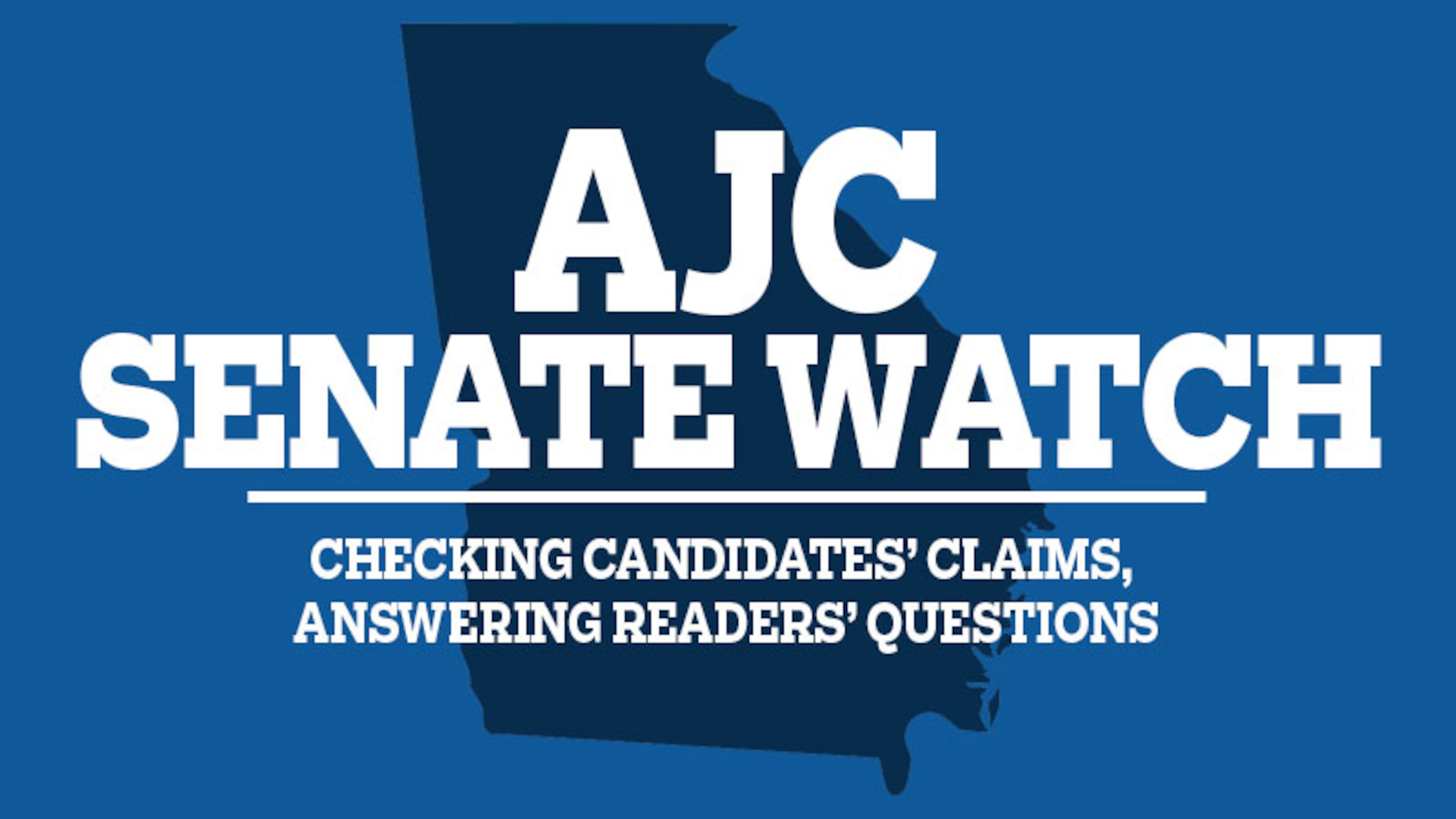Campaign check: Loeffler says Warnock will ‘pack’ Supreme Court

The statement:
“The radical left — including @ReverendWarnock — wants to pack the Supreme Court & stack the judiciary with activist judges who write laws from the bench, undermine public safety, and rip away our rights.” -Sen. Kelly Loeffler tweet, Nov. 28
What we found:
The September death of U.S. Supreme Court Justice Ruth Bader Ginsburg tipped off a cascade of political debates over who would replace her and when the process would begin.
Court vacancies had already been filled with two of President Donald Trump’s nominees since his inauguration in 2017. If confirmed, a third Trump nominee would secure a decisive 6 to 3 conservative majority.

Democrats fought against Trump making another appointment in an election year. After all, they said, Senate Majority Leader Mitch McConnell, R-Ky., used that argument when he refused to hold a vote on Judge Merrick Garland because the nomination came during President Barack Obama’s final year in office.
“The American people are choosing their next president, and their next president should pick this Supreme Court nominee,” McConnell told Fox News Sunday in 2016, months before Trump’s election.
Less than a month after Ginsburg’s death, the Senate Judiciary Committee held hearings on Trump’s nominee, Judge Amy Coney Barrett. By late October, she was sworn in, her lifetime appointment beginning a week before a presidential election won by Joe Biden.
Ahead of her 52-48 Senate confirmation, a Republican Sen Kelly Loeffler campaign ad said she was “the first senator in America to urge President Trump to forward on the court.” The ad said of the Rev. Ralphael Warnock, her Democratic opponent in the January runoff election: “Warnock wants a radically liberal Supreme Court.”
Warnock had never said those words and has repeatedly declined to discuss his views of the Supreme Court.
In late November, she posted a tweet saying that Warnock “wants to pack the Supreme Court.”
Historically, the term has meant altering the size of the Supreme Court. The Constitution doesn’t require a specific number of justices. Nine justices became the practice in 1869, though the number changed six times previously, according to the court’s website.
Warnock was asked twice about whether he supported expanding the court during a Dec. 6 debate with Loeffler at the Atlanta Press Club. He dismissed the topic as a Washington obsession, the Atlanta Journal-Constitution reported.
“As I move all across the state, people aren’t asking me about the courts and whether we should expand the court,” he said. “I know that’s an interesting question for people inside the Beltway to discuss, but (people in Georgia) are wondering what in the world are they going to get some COVID-19 relief.”
Likewise, in a written question-and-answer interview with Atlanta magazine, Warnock did not provide an answer to a query about changing the court.
Although talk about “court packing” began in earnest after Ginsburg’s death, it had also surfaced during the Democratic primary and, most notably, during the administration of President Franklin Delano Roosevelt in 1937.
Roosevelt, a Democrat, wanted to “reshape the ideological balance” of the court after it struck down parts of his New Deal legislation, according to the Federal Judicial Center website. “The law was never enacted by Congress, and Roosevelt lost a great deal of political support for having proposed it,” the website said.
A few weeks ago, when Dictionary.com expanded its definition of court packing beyond the Roosevelt administration, the change was widely covered in conservative media, Fox News reported.
“Democrats, outraged at the GOP’s push to appoint a justice just one week prior to the general election, in turn threatened to ‘pack the courts’ if Biden were to win,” Fox News said, meaning adding justices to overcome the conservative majority.
In contrast, a Rutgers Today article called Barrett’s nomination “classic court packing,” on the part of Republicans. Any talk of Congress changing the number of justices is usually aimed at partisan goals, the report said.
“The president nominated a hardline conservative who appears to question major parts of U.S. constitutional law,” the report said. “And the Senate majority changed its procedural rules – invented to deny Merrick Garland a hearing – to ram through the nomination as people were voting.”
Warnock has closely aligned himself with President-elect Biden, who has said he doesn’t favor court packing, the Associated Press reported. During the Democratic primaries, other candidates — some members of Congress — said the idea should be considered.
In October, Biden told “60 Minutes” that he favored convening a bipartisan group of constitutional scholars to make recommendations to reform the court system.
“It’s not about court packing …,” Biden said. “The last thing we need to do turn the Supreme Court into just a political football - whoever has the most votes gets whatever they want. Presidents come and go. Supreme Court justices stay for generations.”
